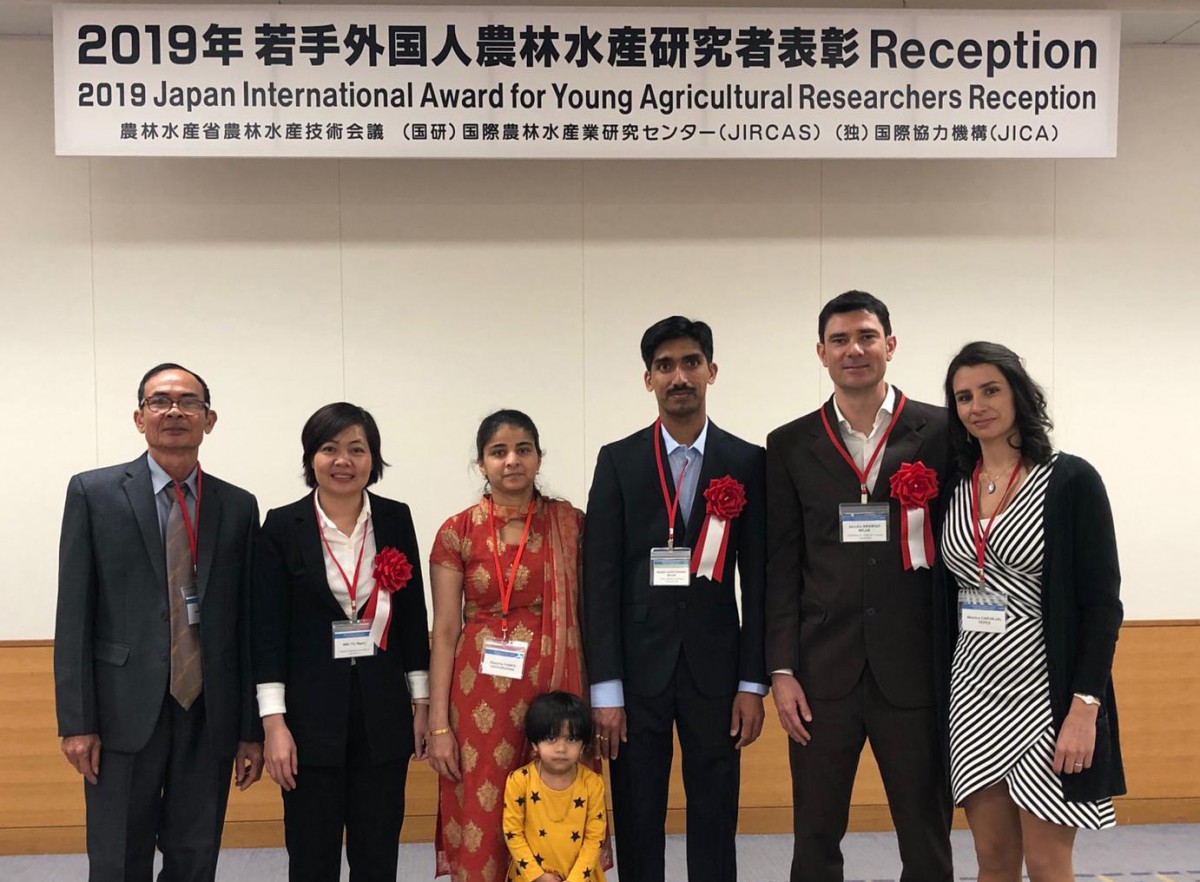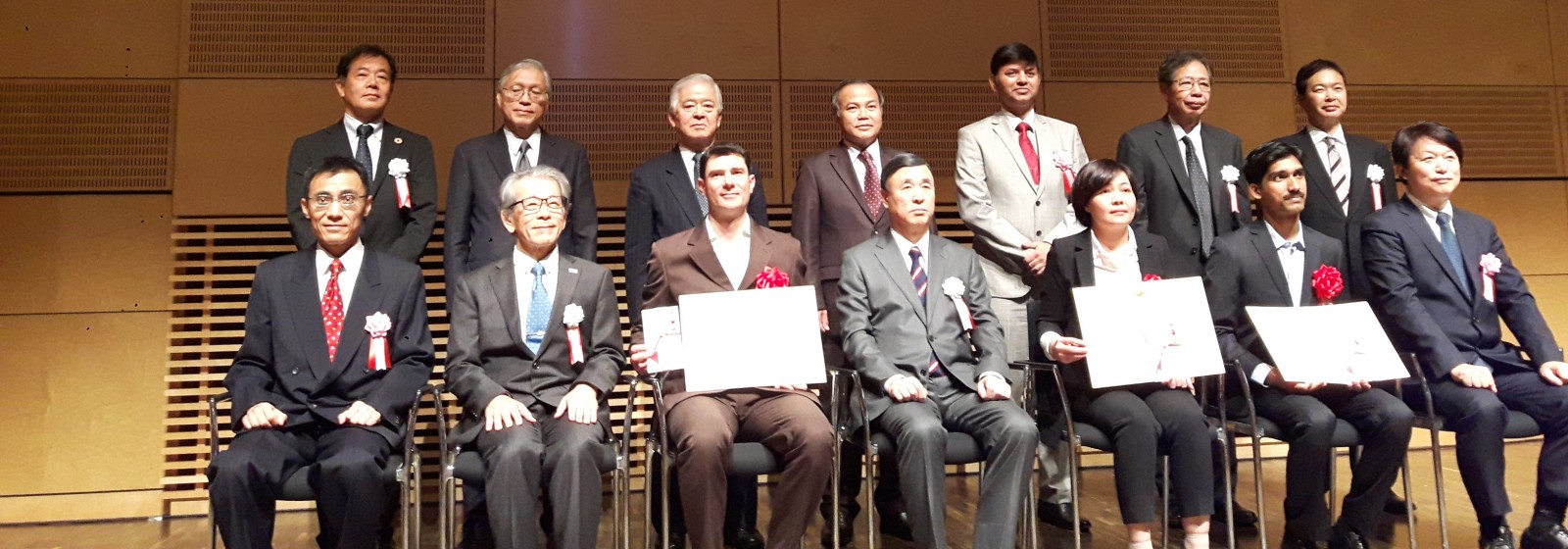Colombian environmental biologist, Jacobo Arango, of the International Center for Tropical Agriculture (CIAT), was recently awarded the 2019 Japan International Award for Young Agricultural Researchers by the Ministry of Agriculture, Forestry and Fisheries of Japan (MAFF) and the Japan International Research Center for Agricultural Sciences (JIRCAS). This prestigious award recognizes Arango’s contributions to developments in Tropical Forages, together with his greenhouse gas mitigation work to combat climate change and improve the food and income security of millions of smallholders around the world.
The awards ceremony took place on 26 November at the Epochal Tsukuba convention center in Ibaraki, about two hours from Tokyo. Every year since 2007, Japan’s Agriculture, Forestry and Fisheries Research Council (AFFRC) selects three young scientists who have demonstrated outstanding research achievements in the areas of agriculture, forestry, fisheries, and related industries in developing countries, that can lead to future technological innovation.
“This award is in recognition of our ongoing work to identify mitigation actions boosted by tropical forages,” says Arango, “Particularly the role that tropical forages play in improving livestock systems from a holistic, production, and environmental point of view.”
Arango’s work is focused around developing tools and technologies to mitigate climate change through reduced greenhouse gas emissions. A key area of his research has been in the exploitation of the Biological Nitrification Inhibition (BNI) capacity of Brachiaria and Panicum tropical forage grasses. The BNI concept was conceived by JIRCAS in collaboration with CIAT more than a decade ago. A long-term partnership research between JIRCAS and CIAT has provided direct evidence for inhibition of soil nitrification by plants via root exudation. The high BNI potential found in these forage grasses increases nitrogen use efficiency and reduces nitrous oxide emissions.
A major outcome of this research is the development and application of accurate phenotyping tools for this key BNI trait. Another significant outcome is the development of a feeding strategy/technology through identification of superior diets for cattle, based on a combination of tropical forage grasses and tree legumes. Because these nutritious forages are more efficiently utilized by target animals, methane emissions from enteric fermentation are effectively reduced.
Arango and his work are part of the Feeds and Forages and Environment flagships of the CGIAR Research Program on Livestock. He is also one of the leading authors of the Intergovernmental Panel on Climate Change (IPCC) and is a contributor to the Sixth Assessment Report (AR6), specifically on mitigation pathways compatible with long-term goals.

Written by José Luis Urrea and Sylvia Pineda (CIAT)
Publications relevant to this award:
- Teutscherova N et al. (2019). Differences in arbuscular mycorrhizal colonization and P acquisition between genotypes of the tropical Brachiaria grasses: Is there a relation with BNI activity? Biology and Fertility of Soils 55:325–337
- Molina I et al. (2019). Effects of tannins and saponins contained in foliage of Gliricidia sepium and pods of Enterolobium cyclocarpum on fermentation, methane emissions and rumen microbial population in crossbred heifers. Animal Feed Science and Technology 251:1–11
- Nuñez J et al. (2018). Biological nitrification inhibition activity in a soil-grown biparental population of the forage grass, Brachiaria humidicola. Plant and Soil 426. 401–411
Read more about Arango:
- Jacobo Arango, Lead Author of the Sixth IPCC Assessment Report Blog, CIAT 5 June 2019
- The IPCC names Dr. Jacobo Arango as a lead author for its next Assessment Report Blog CCAFS website 20 Mar 2018
